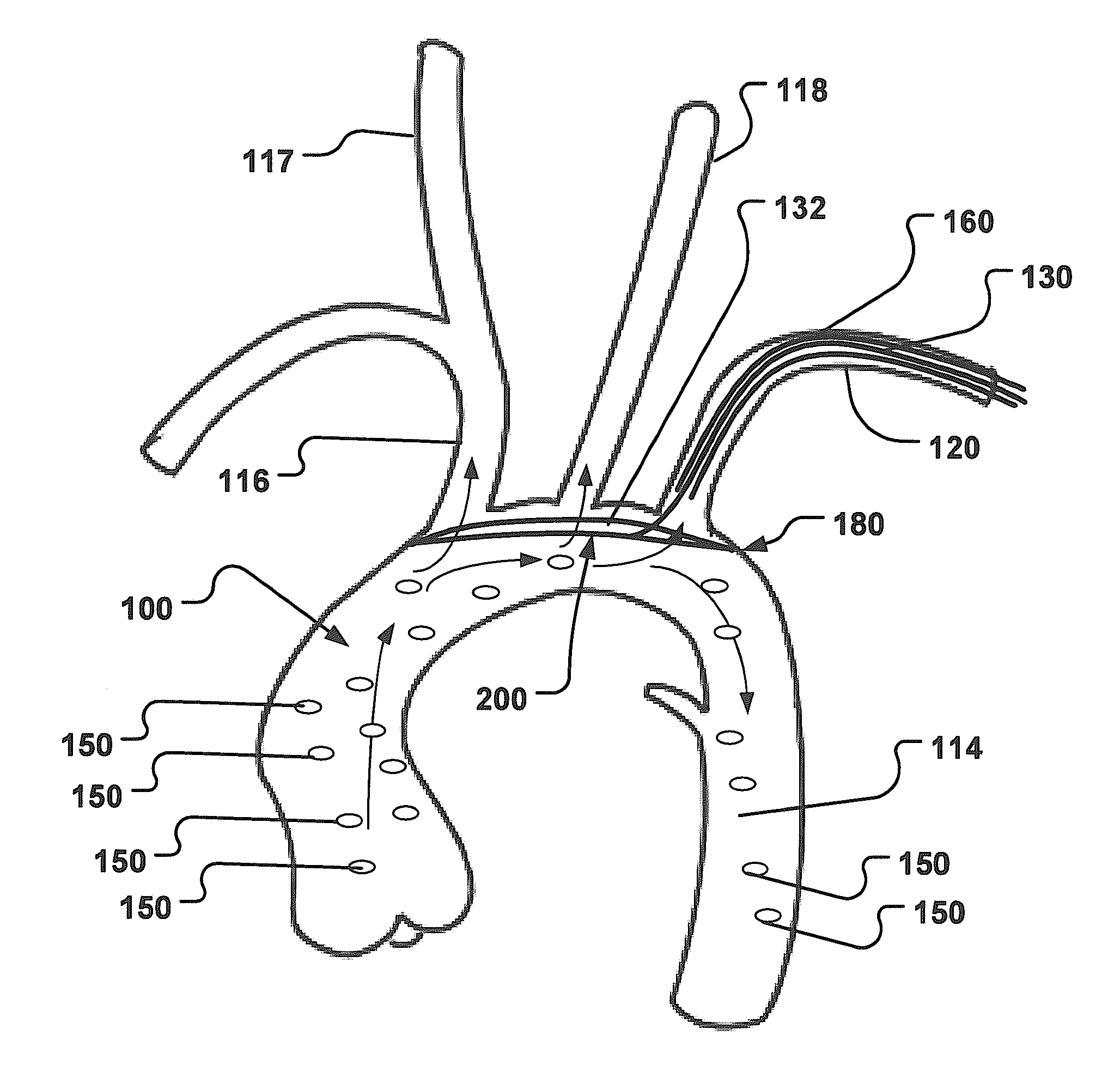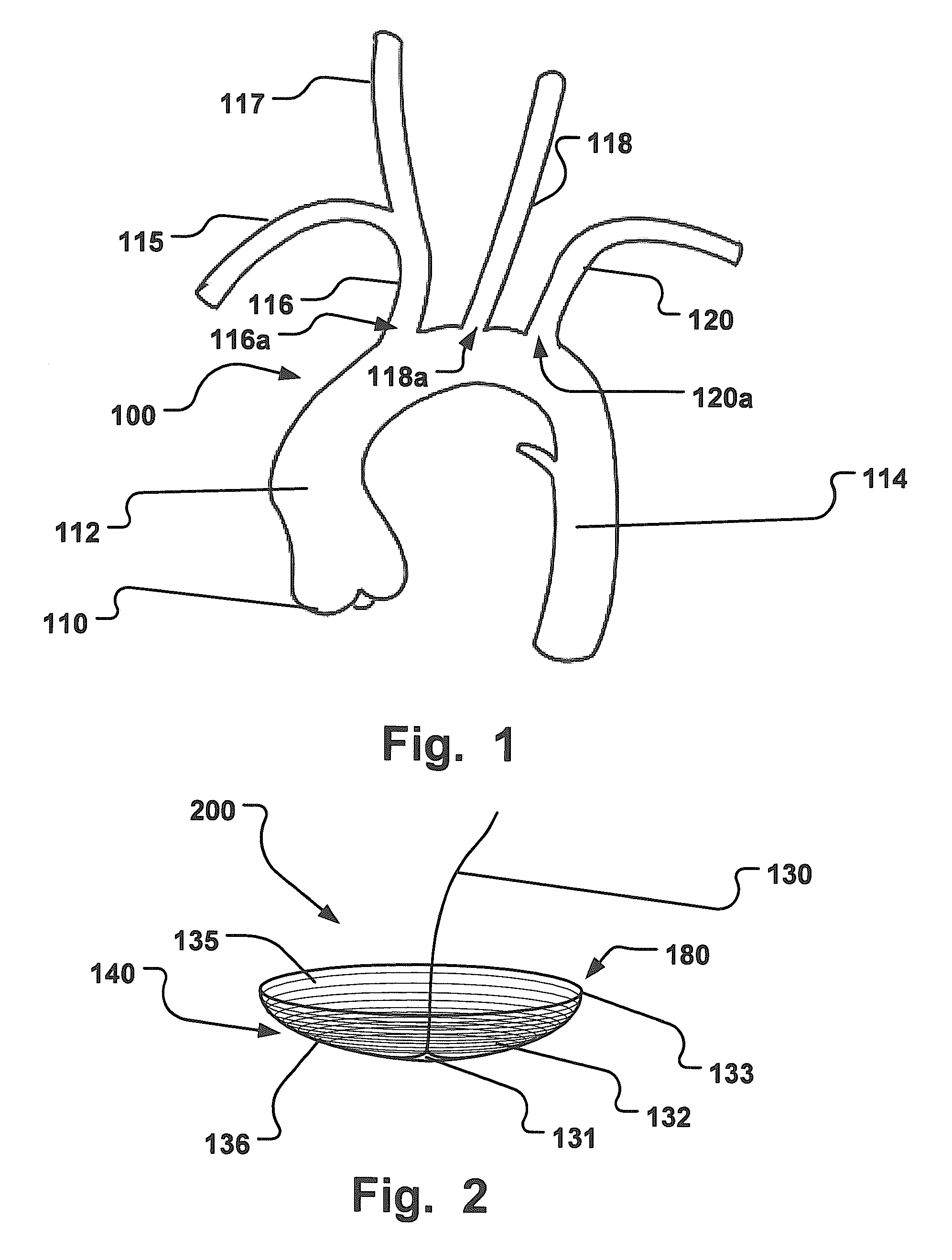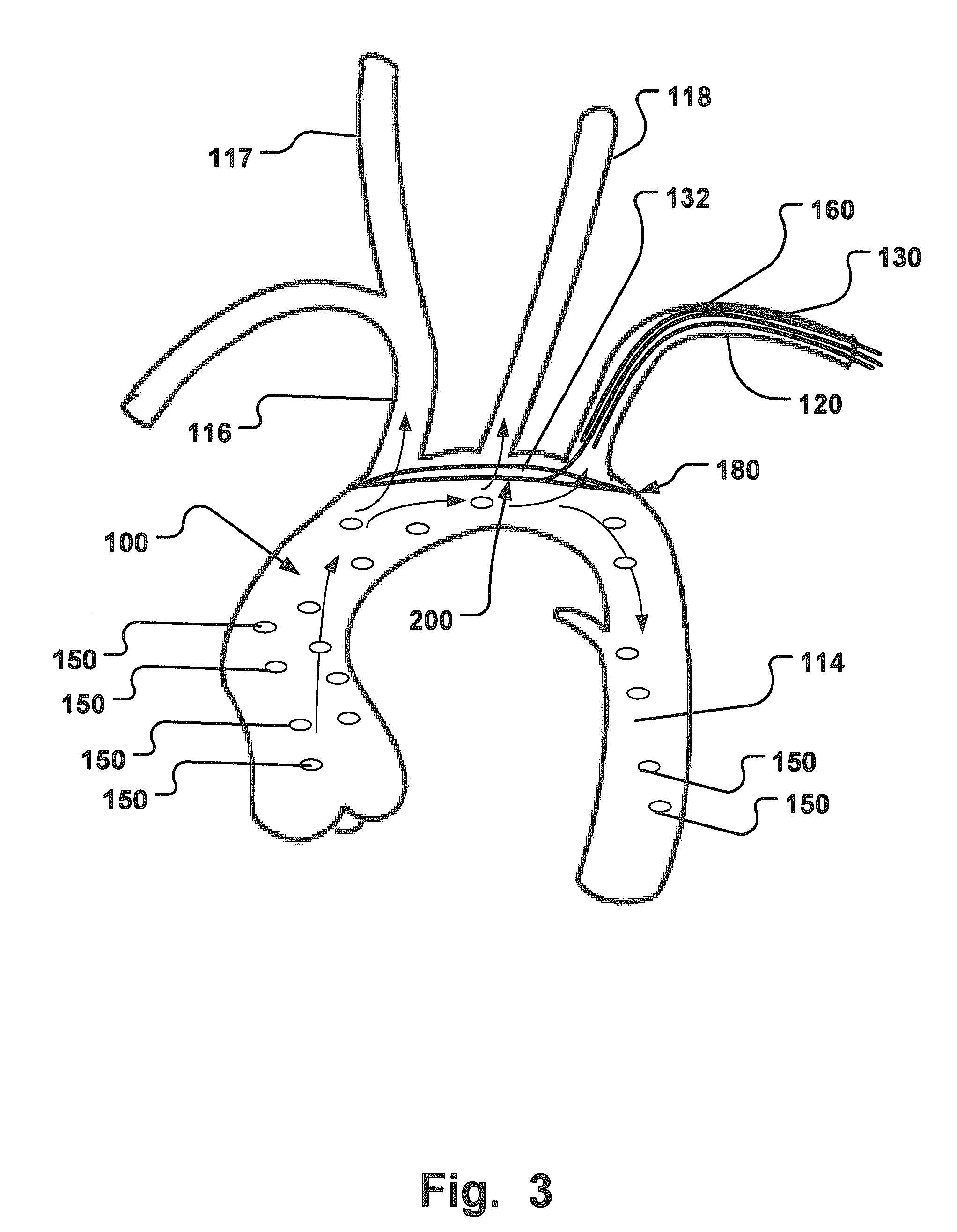Temporary Embolic Protection Device And Medical Procedure For Delivery Thereof
a technology of embolism protection and medical devices, applied in the field of medical devices and medical procedures, can solve the problems of stroke, death, and device damage to the implantation site, and achieve the effect of alleviating, eliminating or mitigating one or more deficiencies
- Summary
- Abstract
- Description
- Claims
- Application Information
AI Technical Summary
Benefits of technology
Problems solved by technology
Method used
Image
Examples
Embodiment Construction
[0081]Specific embodiments of the invention will now be described with reference to the accompanying drawings. This invention may, however, be embodied in many different forms and should not be construed as limited to the embodiments set forth herein; rather, these embodiments are provided so that this disclosure will be thorough and complete, and will fully convey the scope of the invention to those skilled in the art. The terminology used in the detailed description of the embodiments illustrated in the accompanying drawings is not intended to be limiting of the invention. In the drawings, like numbers refer to like elements.
[0082]In order to get a better understanding of the anatomical situation in which the present invention is carried out, FIG. 1 shows a schematic illustration of an aortic arch 100 and a plurality of side branch vessels, including a third side branch vessel 116, a second side branch vessel 118, and a first side branch vessel 120.
[0083]The aortic arch 100 descri...
PUM
 Login to View More
Login to View More Abstract
Description
Claims
Application Information
 Login to View More
Login to View More - R&D
- Intellectual Property
- Life Sciences
- Materials
- Tech Scout
- Unparalleled Data Quality
- Higher Quality Content
- 60% Fewer Hallucinations
Browse by: Latest US Patents, China's latest patents, Technical Efficacy Thesaurus, Application Domain, Technology Topic, Popular Technical Reports.
© 2025 PatSnap. All rights reserved.Legal|Privacy policy|Modern Slavery Act Transparency Statement|Sitemap|About US| Contact US: help@patsnap.com



